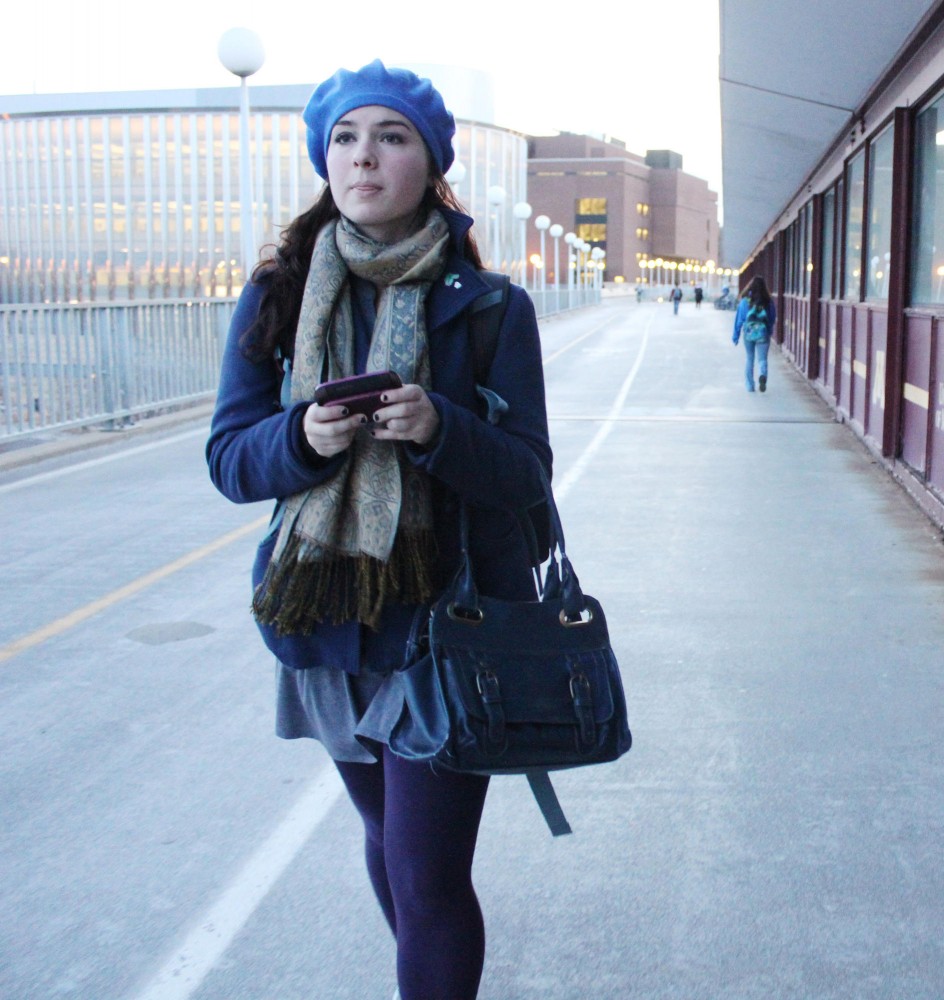When registration begins for spring semester classes Tuesday, students looking for a higher GPA should consider taking an 8 a.m. class.
Early classes lead to higher average GPAs and decreased alcohol use the night before for college students, according to a recent study.
For every hour later that a studentâÄôs class began, average GPA decreased by about a tenth of a point, said Pamela Thacher, a professor at St. Lawrence University who co-wrote the study.
She said, for example, that a student who takes an earlier class and receives a 3.1 GPA would receive a 2.9 if the class were three hours later in the day.
On a typical Thursday at the University of Minnesota, about 44 percent of classes start before noon. About 400 classes begin between 2 p.m. and 3 p.m., the highest percentage of all time slots, according to the Office of Classroom Management.
Thacher said studies show adequate sleep positively impacts cognition and extra sleep at middle and high school ages gives students a significant advantage. But that same hypothesis didnâÄôt translate to college students.
âÄúYou do get a little extra sleep, but itâÄôs not enough to make a difference in your GPA,âÄù she said.
Thacher said the biggest correlation was alcohol use âÄî students tended to drink more heavily the night before if they had classes that start later in the day.
Early classes are beneficial to college students because they get their day started sooner, she said.
Freshman Abdalrahman Ajarmeh said he chooses to take his classes in the morning if possible.
He said he is more productive throughout the rest of the day and performs better in an 8 a.m. class than an afternoon one.
âÄúI donâÄôt understand anything after 3 p.m.,âÄù Ajarmeh said. âÄúI feel like I just want to go home âÄî I donâÄôt want to study anything.âÄù
Some University professors prefer teaching in the morning, too.
Though students in instructor Virginia SteinhagenâÄôs morning German classes are tired, she said she can usually get them to participate.
âÄúI find it harder to get them out of that mid-afternoon slump than the early morning,âÄù she said.
She said students who take classes at 8 a.m. get into a good rhythm and are able to be more productive throughout the day.
Steinhagen also guessed that registering for an early morning class could be a characteristic of more committed students.
âÄúMaybe good students are more willing to go to class at eight in the morning,âÄù she said.
But Thacher said the students in the study were not able to select their class times, so this theory doesnâÄôt apply.
Marissa Collard, a pharmacy graduate student, doesnâÄôt get a choice in her schedule, which consists primarily of early classes three days a week.
While she finds it hard to stay awake and participate fully in early morning classes, she said there is an advantage to getting her classes done before noon.
âÄúItâÄôs nice to be done early because then you have more time to do other things,âÄù she said.
But Gabriel Bamana Kuamba, a teaching specialist in the anthropology department, would prefer to move his 8 a.m. class to the afternoon.
He said students are sleepy, especially on Monday mornings, and are unwilling to participate in class discussions.
âÄúI think itâÄôs quite hard for them to be fully awake,âÄù Bamana said.


